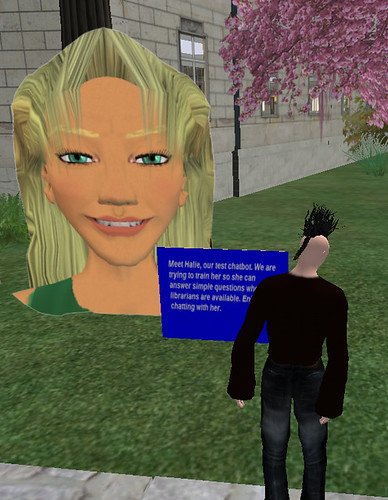This is a non-comprehensive reading list I originally put together for students of my Intermediate Programming class at Woodbury University, Spring 2018. I consider it a work in progress and am open to suggestions for inclusion.
Pre-History
Design Principles
- Designing A Chatbot’s Personality in Chatbots Magazine
- Designing Chatbot Personalities from FastCoDesign
- What Chatbots Reveal About Our Own Shortcomings
Utopia/Dystopia
- Move Over Chatbots, Here Come The Artbots
- Microsoft deletes ‘teen girl’ AI after it became a Hitler-loving sex robot within 24 hours
- From Russia, with Love, links to PDF
- Video of BINA48 and info
- Speak Memory - a chatbot with the dead
- How Russian Bots Invade Our Elections video
Bot Ethics
- Hard Questions About Bot Ethics
- When Chatbots Lack Diversity, This is What Happens
- Why Do So Many Digital Assistants Have Feminine Names
- BIGOTED BOTS: RACIAL AND GENDER BIAS IN ARTIFICIAL INTELLIGENCE
- IBM’’s Code of ethics for AI and Chatbots that every brand should follow
Tools and Techniques
- Cheap Bots Done Quick
- EstherBot: My Resume, as a Bot
- Building a Conversational Bot with Javascript and Node
- Handy-bots starter code projects on Glitch.com
- Botwiki catalog of useful, artistic online bots, tools an d tutorials
- Dan Shiffman Twitterbot tutorials with Twitter API and P5JS
Book reading list
- McCorduck, Pamela (2004), Machines Who Think (2nd ed.), Natick, MA: A. K. Peters, Ltd., ISBN 1-56881-205-1
- Weizenbaum, Joseph (1976), Computer power and human reason: from judgment to calculation, W. H. Freeman and Company, ISBN 0-7167-0463-3
- Whitby, Blay (1996), “The Turing Test: AI’s Biggest Blind Alley?”, in Millican, Peter; Clark, Andy, Machines and Thought: The Legacy of Alan Turing, 1, Oxford University Press, pp. 53–62, ISBN 0-19-823876-2
- Norvig, Peter. Paradigms of Artificial Intelligence Programming. (San Francisco: Morgan Kaufmann Publishers, 1992), 151-154, 159, 163-169, 175, 181. ISBN 1-55860-191-0.
- Wardip-Fruin, Noah. Expressing Processing: Digital Fictions, Computer Games, and Software Studies. (Cumberland: MIT Press, 2014), 24-36. ISBN 9780262517539.
